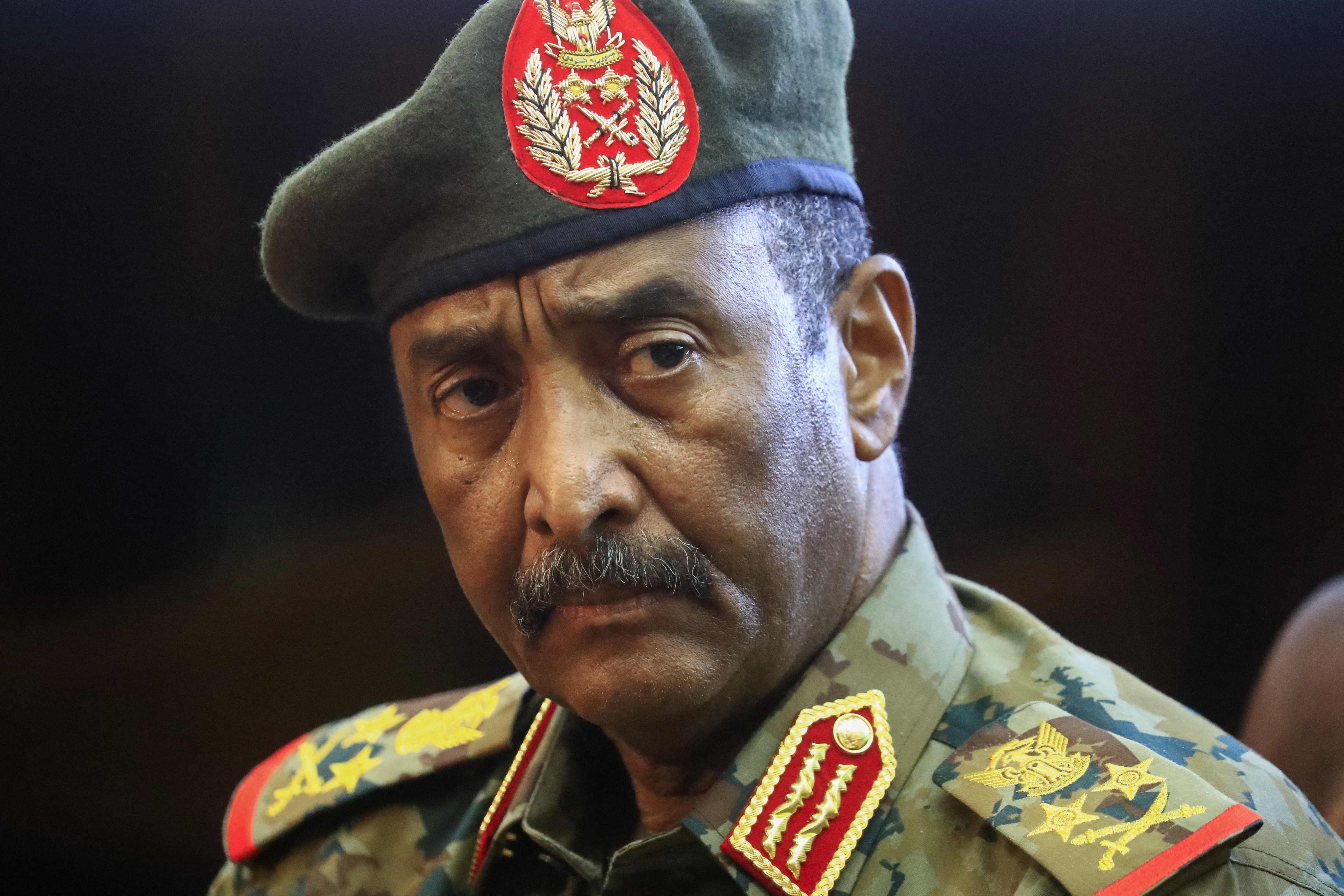
Violence broke out on Saturday in Sudan between the army and the paramilitary Rapid Support Forces (RSF), putting at risk efforts made so far towards the country’s progression to civilian rule.
As the violence escalates into a second day of fighting, with nearly 600 people wounded and the country on lockdown, experts say the Sudanese army seems to have superior power for now.
General Abdel Fattah al-Burhan is the military commander leading the army against the RSF. But who is the man who has for years been the de facto leader of Sudan?
Darfur days
Although al-Burhan did not rise to prominence until 2019, he had an active role in the country’s military long before that, with a posting to Darfur in the early 2000s during the conflict there, in which he rose to become a regional commander by 2008.
While former President Omar al-Bashir and other top Sudanese officials have been charged with genocide and crimes against humanity by the International Criminal Court for what happened in Darfur, al-Burhan has not. Neither has Mohamed Hamdan “Hemedti” Dagalo, head of the RSF, his former ally and current rival.
Over the years, al-Burhan distanced himself from the atrocities committed there, where the army, backed by the RSF, crushed a rebellion in a conflict that killed some 300,000 people and displaced another 2.7 million.
Uprisings, coups and a derailed civilian transition
By 2019, al-Burhan had travelled to Jordan and Egypt for further military training and had become chief of staff of the Sudanese army – a position to which he was promoted in February 2018.
When the uprising that toppled al-Bashir took place in April 2019, ending his nearly 30-year rule, al-Burhan was inspector general of the army and Sudan’s third-most senior general.
Amid popular protests against the Bashir-era defence minister leading the post-removal Transitional Military Council (TMC), al-Burhan was made the head of the TMC.
A few months later, international pressure led to the formation of the Sovereign Council (SC), a civilian-military partnership to steer the country towards elections this year, in place of the TMC.
As head of the SC, al-Burhan became the de facto head of state, working alongside the civilian pro-democracy forces in the country.
In 2021, however, al-Burhan and his second-in-command Hemedti led a coup, seizing power and derailing Sudan’s short-lived path to democracy.
As de facto head of state, al-Burhan has forged closer ties with the United Arab Emirates, Saudi Arabia and Egypt, states that had encouraged the general and Hemedi, the head of the RSF, to support the removal of al-Bashir.
The Gulf states in particular gave significant amounts of aid to Sudan as Sudanese troops were deployed in the Saudi-led coalition to fight against Iran-aligned Houthi rebels in Yemen.
Al-Burhan also has close relations with Egypt, with the two armies staging joint military exercises and al-Burhan himself having trained with many Egyptian generals at its military college.
Relations between the army and the RSF have been deteriorating for a while as parties have jockeyed for power, and the latest crop of violence seems to be an articulation of that friction.
Under a framework reached last December between the army, the RSF and Sudan’s civilian pro-democracy forces, the army had agreed to return to its barracks and the RSF to be absorbed into its ranks, the two forces brought together under army leadership.
As the time drew nearer for the signature of a subsequent agreement to begin implementing these agreements, alliances seemed to be shifting and the public discourse became tenser.
The recent outbreak of violence has crushed many hopes for the restoration of civilian rule in Sudan.







